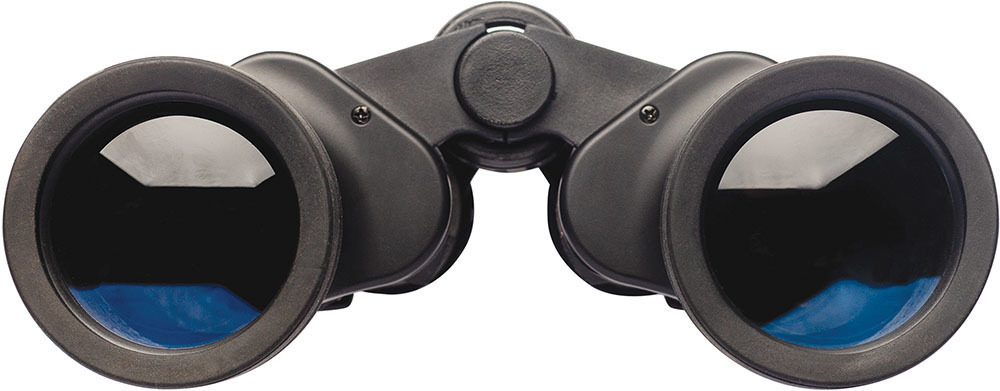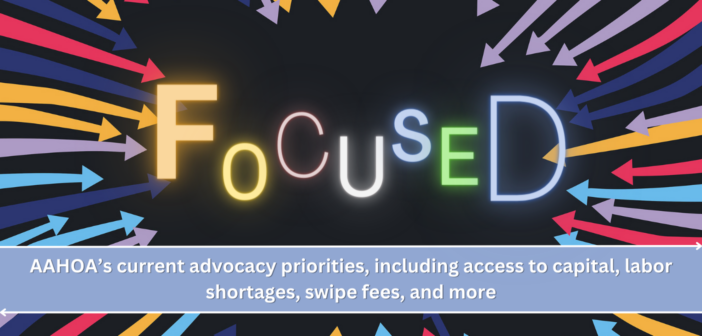Examining AAHOA’s current advocacy priorities, including access to capital, labor shortage, swipe fees, and more
A showdown between the House and Senate over next year’s budget sparked concerns the government would shut down Oct. 1, potentially hurting the whole economy unless it were resolved quickly. Still, amid the blustering and inaction, opportunities to score a meaningful policy victory – or stave off a costly loss – sometimes do emerge. That’s why AAHOA is coming out of the COVID-19 pandemic “roaring on the advocacy front,” according to Neal A. Patel, managing partner of the Washington-based lobbying firm Patel Partners.
State and federal advocacy have been a top priority for AAHOA Chairman Bharat Patel and Laura Lee Blake, the association’s president and CEO. From hosting Capitol Hill fly-ins each spring and fall, to having members of Congress attend AAHOA regional meetings and town halls, to hosting back-of-the-house tours with elected officials, AAHOA is utilizing its strongest asset – its membership – to advocate for itself, Neal Patel said.
“Our industry affects every single congressional district and every state in the nation, so it’s imperative AAHOA has a seat at the table on key issues facing the industry,” said Patel, AAHOA’s federal lobbyist.
In the past year, AAHOA’s federal advocacy efforts have focused on developing relationships with elected officials and connecting them with members, Patel said. The struggles and powerful success stories of members are the hospitality industry’s most effective marketing tool, along with its proven record of creating jobs, bringing in tourism dollars, and bolstering local economies.
When AAHOA Members share their personal and business stories, they give the industry a face and a name. In time, the relationships members form with elected officials can have a real impact on the entire industry.
LOAN LIMITS AND LABOR
For AAHOA, access to capital is one area of focus, Patel said. The reason is simple: Members face the same issue with it every day, no matter their geography or the brand of their hotel, he said.
The Small Business Administration (SBA) program allows many hoteliers to enter the industry, and AAHOA wants it to continue serving that function. That’s why AAHOA is advocating for an increase in the maximum loan amount for the SBA 7(a) program, Patel said.
The maximum amount for an SBA 7(a) loan is $5 million, and that was set 13 years ago, Patel said. Given that length of time and high inflation rates during the past few years, borrowers have seen their purchasing power erode significantly since 2010.
AAHOA is asking for the maximum loan amount to reflect today’s market rates, so it’s advocating for loans to be capped at closer to $10 million or $15 million, Patel said.
The persistent labor shortage is another key advocacy issue for the association. As the effects of the pandemic subside, the industry continues to face a shortfall of more than a million workers, Patel said. In response, AAHOA is taking a multipronged approach.
AAHOA has come out in support of the Essential Workers for Economic Advancement Act, H.R. 3734, sponsored by Rep. Lloyd Smucker (R-PA). The bill aims to fill jobs through a new classification of visa – the H-2C nonimmigrant visa program for seasonal workers, Patel said.
“AAHOA engaged early with Representative Smucker’s office and made the legislation a hallmark of our advocacy efforts earlier this year, and the bill gained enough support to be introduced in a bipartisan manner,” Patel said.
The legislation, also supported by Rep. Henry Cuellar (D-TX), creates a pathway for workers to come to the United States on three-year visas that could subsequently be renewed for an additional six years.
The program is intended for small businesses in industries with comparatively low sales per employee, and it would be available for nonagricultural jobs with lower education thresholds that have been unfilled for extended periods of time.
In June, the National Restaurant Association (NRA) called for passage of the bill, saying 79% of restaurant operators currently have job openings that are hard to fill.
The special visas initially would be made available to only 65,000 new workers, and after the first year, the number of workers would range from 45,000 to 85,000 annually, depending on market need.
According to the NRA, almost 40% of restaurant operators cite recruiting and retaining workers as their top challenge, a sentiment many hotel operators would echo. While endorsing the bill in July, AAHOA noted employment in the leisure and hospitality industry remained below its February 2020 level by 369,000 jobs, according to federal data. Meanwhile, there were more than 100,000 job vacancies posted on Indeed.
The bill hasn’t made it out of committee yet. The Biden administration already had expanded the temporary nonagricultural worker H-2B visa program to include an additional 64,000 workers in fiscal-year 2023. That’s in addition to the 66,000 H-2B visas that are normally available each year.
Even with the proposed H-2C visas, the total number of available visas wouldn’t do much to address the national dearth of workers.
AAHOA also is taking a more active role in the Critical Labor Coalition, formed to find solutions to the labor shortage. The group includes trade associations, nonprofits, corporations, and individual business owners, and it advocates for policy changes to remove the barriers keeping many people from working.
In July, Patel represented AAHOA as the Critical Labor Coalition provided Capitol Hill staffers with an update on the worker shortage and its effects on small businesses. During his presentation, Patel urged passage of the Essential Workers for Economic Advancement Act.

ALEX SG/SHUTTERSTOCK.COM
FIGHTING FOR FAIR FEES
AAHOA is advocating on a host of issues, including fair franchising, online travel agencies, protecting 1031 exchanges, increasing per-diem rates, and combatting human trafficking. This year in Washington, AAHOA has sought out like-minded groups to amplify its voice, Patel said.
As an example, Patel pointed to AAHOA’s decision in July to join the Merchants Payments Coalition (MPC), which is dedicated to combatting excessive swipe fees from credit and debit cards. At the average swipe-fee rate of 2.24%, hotel operators in the U.S. would lose approximately $3.1 billion in annual revenue if every hotel room were paid for by card.
Credit- and debit-card swipe fees have more than doubled during the past decade to a record $160.7 billion last year, according to the MPC. The fees are most merchants’ highest operating cost after labor, and they drive up prices by more than $1,000 a year for the average family, the coalition said.
“AAHOA Members know the impact of these rising fees on their businesses and their customers, and we’re glad to have them by our side,” said Doug Kantor, a member of the MPC’s executive committee and general counsel for the National Association of Convenience Stores.
“Along with our existing member associations, adding hotels helps show Congress the wide range of industries that are affected by swipe fees and the need to take action to bring competition to the broken swipe-fee market,” Kantor added.
A VISIT FROM A VIP
AAHOA strives to build relationships with elected officials in Washington, and a special moment came in June, when the White House welcomed Indian Prime Minister Narendra Modi for a four-day state visit. AAHOA’s leadership was invited by the White House to attend the welcoming ceremony on the White House lawn, Patel said.
Later in the day, AAHOA’s leadership was at Capitol Hill to hear Modi’s address to a joint meeting of Congress. Patel pointed out that in May, Chairman Patel and President & CEO Blake had written letters to congressional leaders on behalf of AAHOA, encouraging them to extend Modi an invitation.
“And they listened,” Neal Patel said. “AAHOA’s presence is being felt in Washington and at home.”
On the RADAR
Among the legislative proposals AAHOA is tracking is the National Human Trafficking Hotline Enhancement Act, H.R. 2601, sponsored by Reps. Laurel M. Lee (R-Fla.) and Kathy Castor (D-Fla.).
 The bill would require entities contract with the National Human Trafficking Hotline to cooperate with state and local law enforcement when receiving tips through the hotline.
The bill would require entities contract with the National Human Trafficking Hotline to cooperate with state and local law enforcement when receiving tips through the hotline.
AAHOA has endorsed the bill as part of its broader effort against human trafficking. AAHOA Members routinely coordinate with law enforcement agencies and social services to ensure hotels and motels are safe for everyone.
Lee said the hotline has provided more than 15,000 tips to law enforcement since its inception in 2007, and until recently, its operator, Polaris, had cooperated with law enforcement to fight human trafficking. But, in a recent policy change, Polaris decided not to communicate tips to law enforcement officials unless victims self-report.
“For the hotline to operate effectively, there cannot be a divide between their efforts and those of law enforcement,” Lee said in a statement.
In April, Lee said 36 state attorneys general had contacted House and Senate leadership to express outrage that the hotline wasn’t automatically sharing tips with law enforcement. Her bill would amend a section of the Trafficking Victims Protection Act of 2000 to address the issue.




